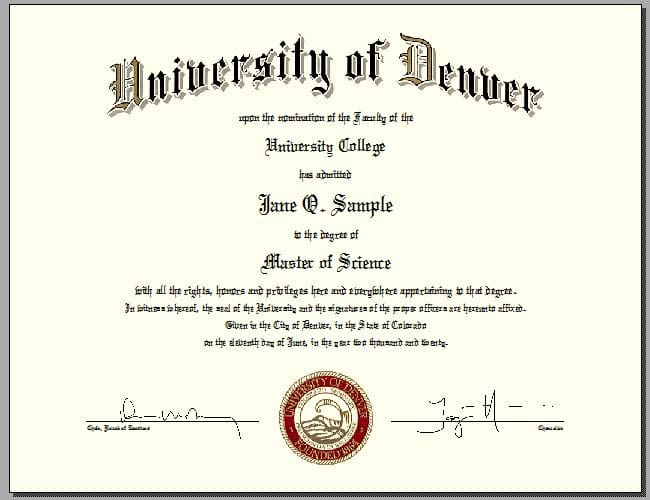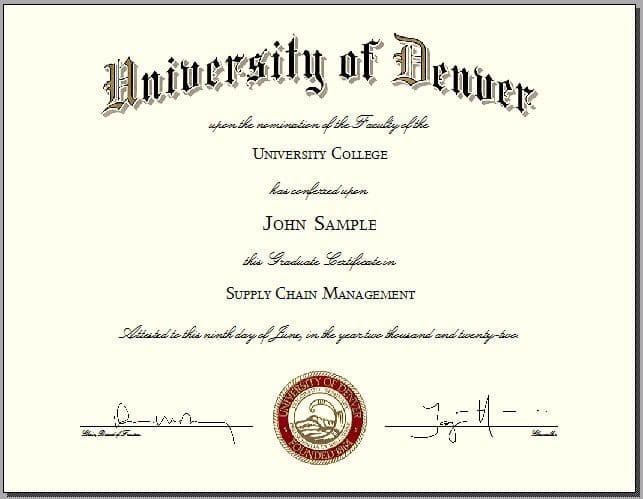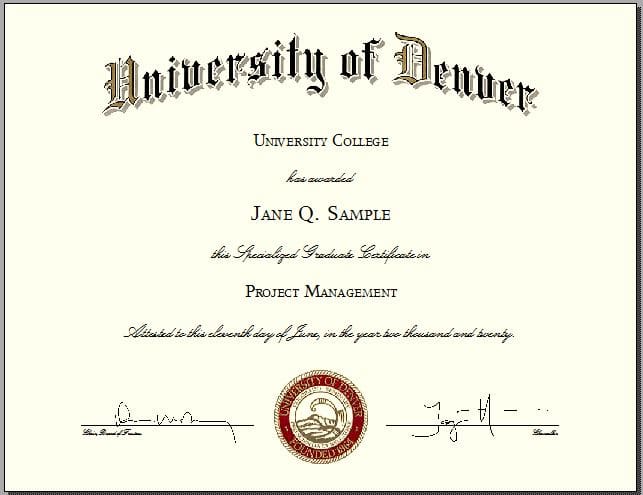Frequently Asked Questions
Don’t see the answer you’re looking for? Call our Student Support Center at 303-871-2291.
Who is University College
How long does it take to finish a degree?
How long do classes last? How often do classes meet?
What are the tuition costs?
At University College, we pride ourselves in providing students an affordable tuition and fee rate, priced exclusively for working adults. In most cases, University College students pay a solitary technology fee of $4 per credit hour (exceptions include a $50 lab fee for GIS classes). For the current academic year tuition rates, please view the tuition and aid page.
What is the difference between a graduate certificate and a master's degree?
A graduate certificate is designed to help students sharpen their abilities or add to their skillset through a shorter, focused program. Credits earned through a graduate certificate program may be applied toward a master’s degree in the same concentration area. A master’s degree at University College prepares students with an extensive, interdisciplinary education in their chosen field or area. Learn more here.
What will my diploma look like?
Your diploma will state that you are a graduate of the University of Denver and it will include your degree title (e.g., Master of Science or Master of Arts). The diploma will not include the specific area of study and it will not indicate if you took classes on campus or online. This is standard practice at the University of Denver and true for most American universities. Your transcripts will be the official document that reflects your program of study and will include specific course titles and grades.
What will my certificate look like?
Your certificate will state your name, the certificate type (specialized graduate certificate or certificate), and area of study. The certificate will not indicate if you took classes on campus or online, which is a standard practice at the University of Denver and true for most American universities.
\
Is every program offered online?
Every program at University College can be completed 100% online. Note that some students require on campus courses for financial aid reasons or student visa requirements; please check with your academic advisor to make sure there are enough on campus course options in your selected program.
When can I start my program?
University College operates on the quarter system, which means that courses begin in fall, winter, spring, and summer. All programs give the option to start during any quarter.
What technology requirements do I need?
Regular consistent access to a computer and internet with the following specifications is required: at minimum, students should have Windows 8, Windows 8.1, or Windows 10 Home or Pro (recommended) and Apple users should have a Mac OS 10.10.5 or above. While Canvas has been carefully crafted to accommodate low bandwidth environments, the minimum of 512kbps is required. Audio and video computer capabilities, including access to Zoom, are needed for most classes.



